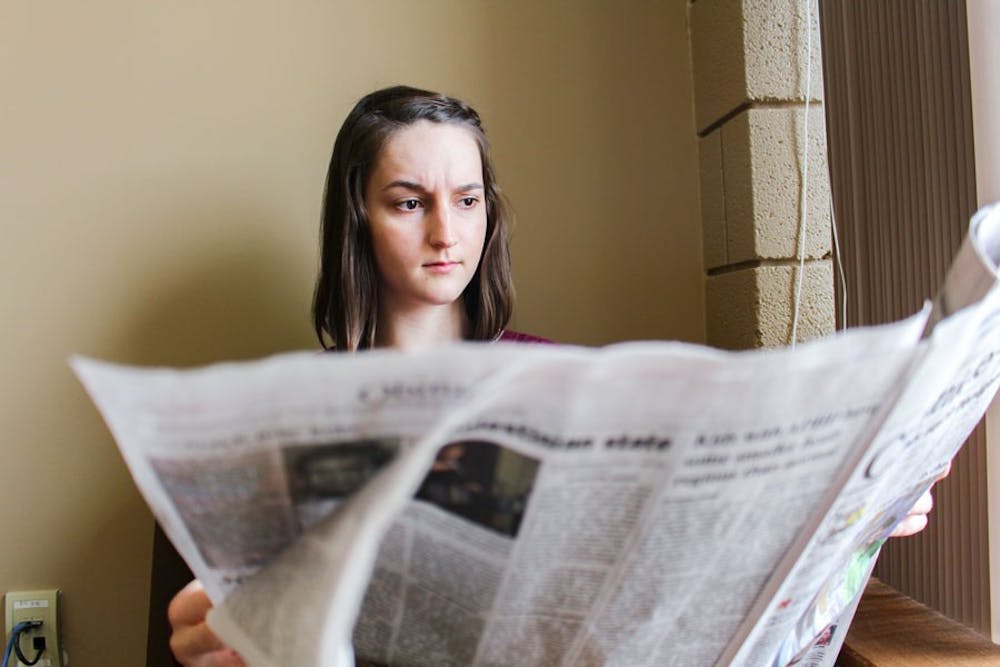By Becca Robb | Co-Editor in Chief
"I don't know what to believe with all this fake news right now," my friend said with a shrug. "You just can't trust the media."
Her words stung-I am the media. But fake news is tearing a hole in people's already worn trust in news sources.
People make up fake news stories to deceive others. People try to sneak them in as credible journalism to take advantage of political unrest in America.
Even though fake news is a serious problem, not all of the media is fake and corrupt. Nothing is ever that simple. When I think of strong journalism, I think of Spotlight. I think of Watergate. Darkness corrupted our communities, and reporters shone a light into those communities.
But fake news makes a mockery of true journalism. Its most dangerous effect is that it erodes people's trust in reality. People start to ignore the facts because nobody is sure what is true anymore. And we need to arm ourselves against this effect.
Here are some ways we leave ourselves vulnerable to fake news:
1. We settle for easy answers.
People love quick answers. Here's a tip: most answers can't fit in 140 characters or less. It takes discipline to ask hard questions and then sit down for the long answers. We can combat fake news by becoming more familiar with true news. Maybe that means downloading a news app, like Feedly, or making Google News your browser's homepage.
2. We live in fishbowls.
We tend to seek information that backs up what we already believe. It's like we're swimming around and around in the same muddied water in a fishbowl, never wondering what's on the other side of the glass. Many of us only read the news our friends post on Facebook. And sometimes it's good to hear from the other side.
3. We assume all news is true.
Use this three-step litmus test to make sure a story is true: 1) Make sure a well-known news source reported on it, 2) find the author's name and 3) find names of sources in the story. If a story is real, big news sources like The Indianapolis Star and New York Times will report on it. And be careful-fake news sites often mimic reputable news sources. Make sure the URL doesn't have a ".co" at the end, like "bbc.com.co." If you still aren't sure about a story, check Snopes.
My friend is right-you can't trust the media. You can't trust the media just like you can't trust the workers who built your home, or the engineers who designed your computer, or the nurses who checked your pulse. You can't trust them because they're people, and people make mistakes.
Just like I'm responsible as a journalist to be accurate, we're all responsible to be alert. Let's be critical media viewers but also remember the people-the journalists-on the other side of the screen.
So do me a favor: Don't trust everything in this article. Listen to it well. Let it simmer. But don't assume I'm right about everything. This is your first exercise.




